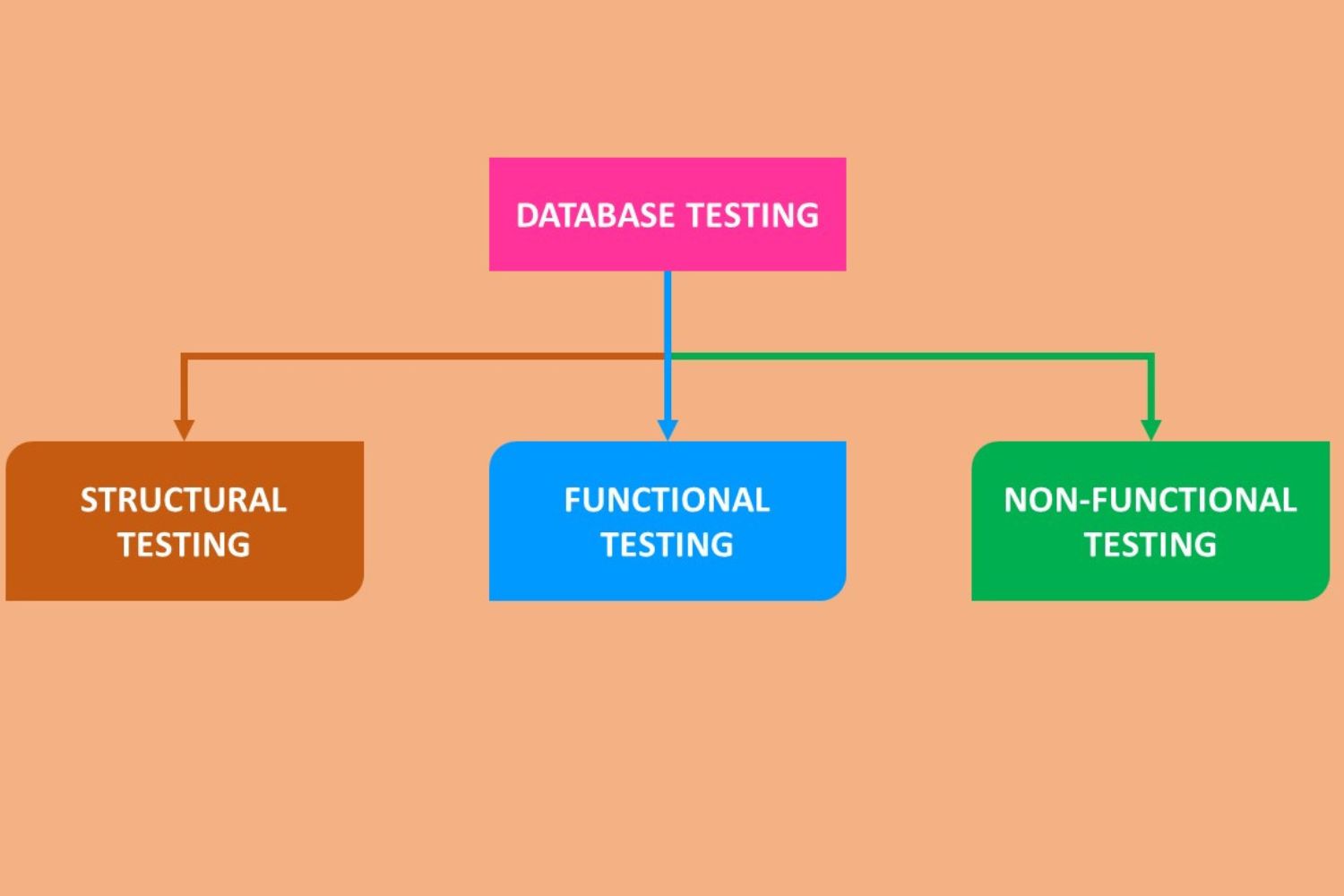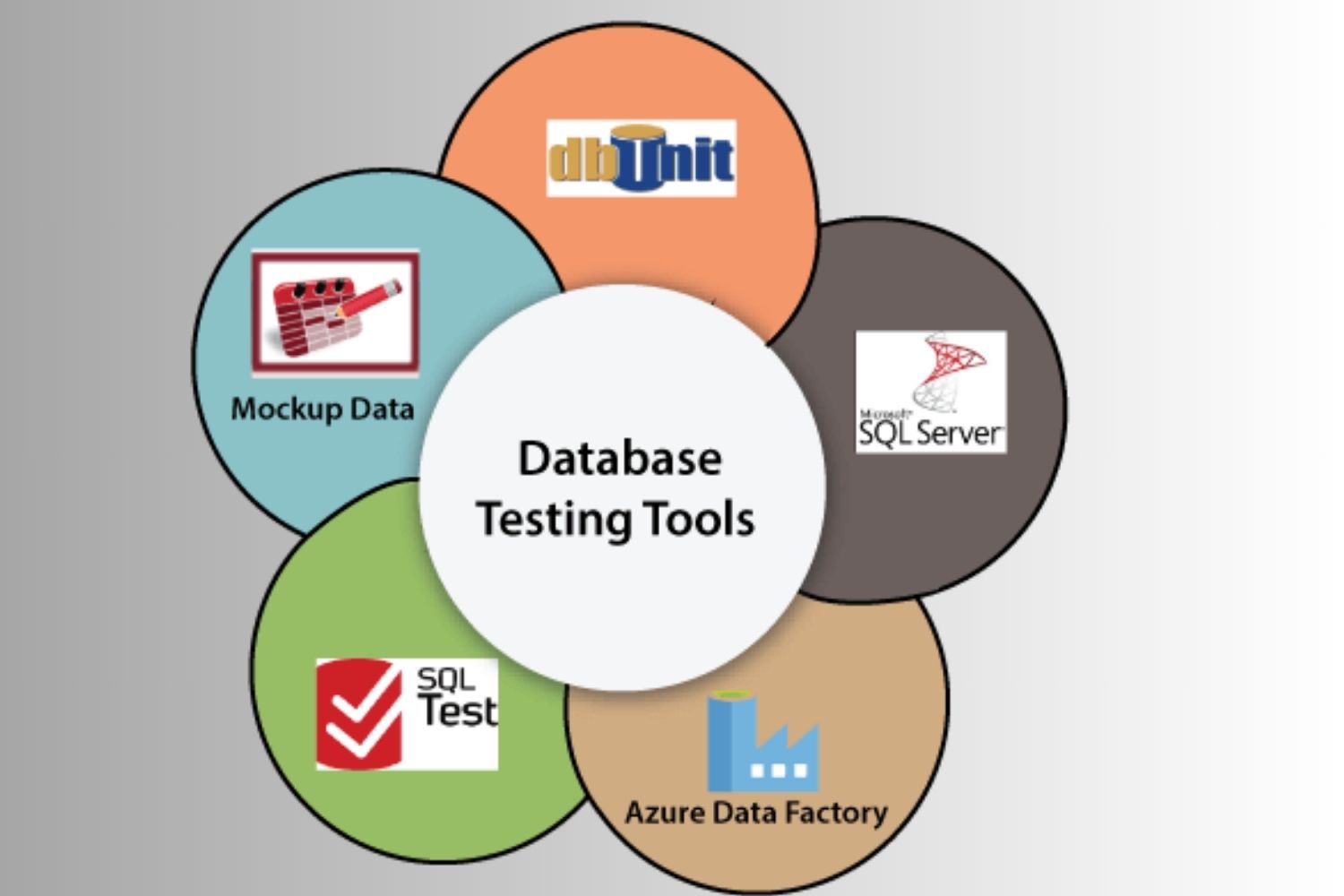
DATABASE TESTING
Database Testing is a type of software testing that checks the schema, tables, triggers etc. of the database under test. It entails writing intricate queries to test the database under load or stress and ensure that it responds quickly. It verifies the consistency and integrity of the data. Database testing is a layered process, as the testing usually covers several different areas. When doing a complete database test, you need to test the user interface layer, the business layer, the data access layer, and the database itself. Together, these layers create a comprehensive and completely responsive application. While developing any kind of software, it is imperative to ensure that they all function as intended.

Working of Database Testing
The operation of database testing involves a total of five processes.
1. Testing Environment Setup: Setting up the testing environment is the first step in conducting a high-quality testing process for databases.
2. Testing scenario generation: Test cases are now being created following the setup of the testing environment. Test cases comprise various inputs and database-related transactions
3. Execution: The main stage of the testing process is the execution phase, during which we attempt to run the test cases that have already been designed (including edge cases).
4. Analysis: Once every test case has been run, it’s time to examine every output and compare it to the desired outcomes. It also indicates whether or not the testing procedure was completed correctly.
5. Log Defects: Log defects indicate that the report has been submitted, and this completes the database testing process. In essence, the tester notifies the developer of any problems or flaws discovered in the software application’s database.
Types of Database Testing
Database testing is broadly classified into three different types:
Non-functional Testing
Functional Database Testing
Structural Database Testing
1. Non-functional Testing:
Non-functional database testing focuses on non-functional aspects, such as database performance, scalability, and security. This type of testing may consist of:
a. Security testing:– This kind of testing finds risks, threats, and vulnerabilities in the system and stops hackers from launching harmful attacks.
b. Stress testing:– Stress testing assesses a system’s resilience and capacity to handle errors under demanding load circumstances.
c. Volume testing:- This analysis of system performance involves augmenting the database’s volume with data.
d. Load Testing:- This test evaluates the system’s behaviour when it is accessed by numerous users at once.
2. Functional Database Testing:
Functional testing is done from the end-user’s point of view to see if the required actions and transactions made by the end-users satisfy the business requirements.
a. White Box
Testing logical views and database triggers.
Verifying schema and data models.

Verifying the consistency and integrity of references.
Make use of white box testing strategies like condition coverage, statement coverage, and decision coverage.
b. Black Box
Data Mapping.
Checking data that has been saved and retrieved.
Employs boundary value analysis and equivalency partitioning as black box testing techniques.
.3. Structural Database Testing: Structural database checking entails the verification of all items within the data repository that are exclusively used for data collection and cannot be directly accessed by end users. In these types of tests, its server validation is also a critical factor to remember.
a. Schema / Mapping Testing– It involves verifying a front-end application’s objects through database object mapping.
b. Stored Procedures Testing– This test makes sure that the stored procedure and view can be manually executed and produce the desired results.
Database Testing Technologies
There are various technologies and tools for database testing. Some common ones include:
1. SQL: Writing and executing SQL queries to test database data integrity and functionality.
2. Database Management Systems (DBMS): Tools like MySQL, PostgreSQL, Oracle, or Microsoft SQL Server for managing and testing databases.
3. Data Validation Frameworks: Tools like Apache Nifi or Talend for data validation and transformation.
4. Test Automation Frameworks: Tools like Selenium or TestNG can be used to automate database testing tasks.
5. Query Builders: Tools like Apache Drill or Presto can assist in constructing and testing complex queries.
6. ETL Testing Tools: Tools like Informatica or Talend provide ETL (Extract, Transform, Load) testing capabilities.
7. Performance Testing Tools: Tools like Apache JMeter can be used to test database performance under load.
8. Data Masking Tools: Tools like Delphix or Informatica can be used to anonymize sensitive data during testing.

9. NoSQL Database Testing: Tools like Apache Cassandra or MongoDB offer testing capabilities for NoSQL databases.
10. Data Comparison Tools: Tools like Redgate SQL Data Compare or DBComparer help identify differences between datasets.
Benefits of Database Testing
1. Data Integrity Assurance:
Database testing contributes to data accuracy, consistency, and integrity. It guarantees that data is stored, retrieved, and updated accurately and without errors.
2. Reliability and Consistency:
Database testing contributes to the dependability and consistency of data across the application by discovering and resolving anomalies and conflicts in data.
3. Data Validation:
It validates data against specified validation rules, such as data type, format, and range checks. This ensures that the data meets the requirements and limits of the company.
4. Error Detection:
Database testing uncovers data-related issues that manual testing may overlook, such as missing or erroneous data, data truncation, or data duplication.
5. Cost Savings:
Database testing can assist minimize costly data errors and data loss that may occur during production use by detecting and resolving data-related issues early.
Job Roles
1. Lead ETL Tester
2. ETL Tester
3. Junior Risk Tester
4. ETL Validation Tester
5. Database Tester
6. Software Tester
7. ETL Tester with Automation and Strong SQL skills
8. Software Tester ( Active Polygraph Required)
9. ETL Tester (Big Data Testing, Python)
Salary Expected
The salary range for a Database Tester in SCODEEN Global is ₹ 13 Lakhs to ₹ 35 Lakhs Per Annum.
Course Highlights:
1- Suited for students, freshers, professionals, and corporate employees
2- Live online classes
3- 4-month program
4- Certificate of completion
5- Decision Oriented Program of Analysis
6- Live Classes by highly experienced faculties
7- Hands-on experience with real-life case studies)

Conclusion
In conclusion, database testing is a crucial quality assurance activity that contributes to the overall reliability, security, and performance of an application. The specific types of testing we perform will depend on the nature of the application, the database management system, and the business requirements. It helps prevent data-related issues and ensures data integrity, ultimately leading to a more robust and trustworthy software product.

